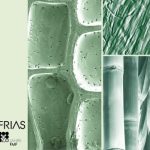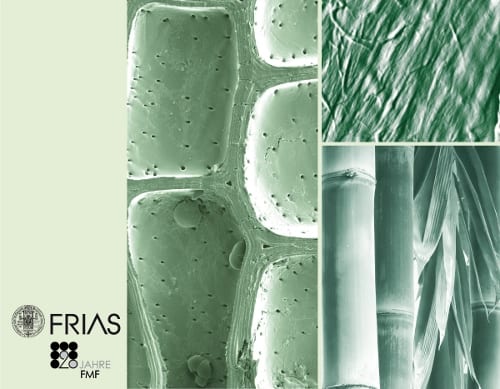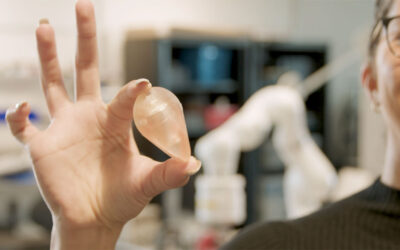 The most complex hierarchy organized chemical structures can be found in Nature. Since the early days of materials research, progress in materials science and engineering has strongly benefited from achieving better insight into complex biological systems. Nature has developed a great variety of highly sophisticated functional polymers integrated into miniaturized biosystems that combine sensor, actuator, and processor functions with energy autonomy in order to respond to and adapt to changes of the environment. Bioinspired developments date back to Leonardo da Vinci’s flying machines and have led to the development of cat eye reflectors, burr- and gecko-like fasteners and bonding systems, self-cleaning lotus leaf-like surfaces, low-weight wood-like composite materials for construction, innovations in the automotive and aerospace industries, butterfly-like antireflective coatings and opal-like effect pigments, self-repair plastics, bionic medical implants, and even tissue repair.
The most complex hierarchy organized chemical structures can be found in Nature. Since the early days of materials research, progress in materials science and engineering has strongly benefited from achieving better insight into complex biological systems. Nature has developed a great variety of highly sophisticated functional polymers integrated into miniaturized biosystems that combine sensor, actuator, and processor functions with energy autonomy in order to respond to and adapt to changes of the environment. Bioinspired developments date back to Leonardo da Vinci’s flying machines and have led to the development of cat eye reflectors, burr- and gecko-like fasteners and bonding systems, self-cleaning lotus leaf-like surfaces, low-weight wood-like composite materials for construction, innovations in the automotive and aerospace industries, butterfly-like antireflective coatings and opal-like effect pigments, self-repair plastics, bionic medical implants, and even tissue repair.
Hermann Staudinger, the father of macromolecular chemistry, was the first visionary in this extraordinary rapid growing field creating a bridge between polymer sciences and biology. His revolutionary concept of molecular polymer design, inspired by Nature, is being applied all over the world to tailor polymers. One of his students, Helmut Ringsdorf took on the challenge to push Staudinger’s visions to new frontiers aiming at polymer biomimicry, targeted preparation of polymers, bioactive polymers, controlling polymer cell adhesion, and at designing synthetic liposomes as nanoreactors and drug delivery systems. On the occasion of his 80th birthday in 2009 a special issue has been published in the journal Macromolecular Chemistry and Physics demonstrating not only the most recent development and state-of-the-art, but also the topical width of the field of bioinspired materials research. The contribution of Peter Fratzl, director of the Max Planck Institute of Colloids and Interfaces in Potsdam and awardee in 2010 of Germany’s most prestigious research prize, the Leibniz-prize, can be accessed for free until end of March 2010 (click here). This year´s Freiburg Macromolecular Colloquium, February 25-27, 2010, sponsored by the Freiburg Institute for Advanced Studies (FRIAS)—Soft Matter Research is also devoted to this exciting topic.

















